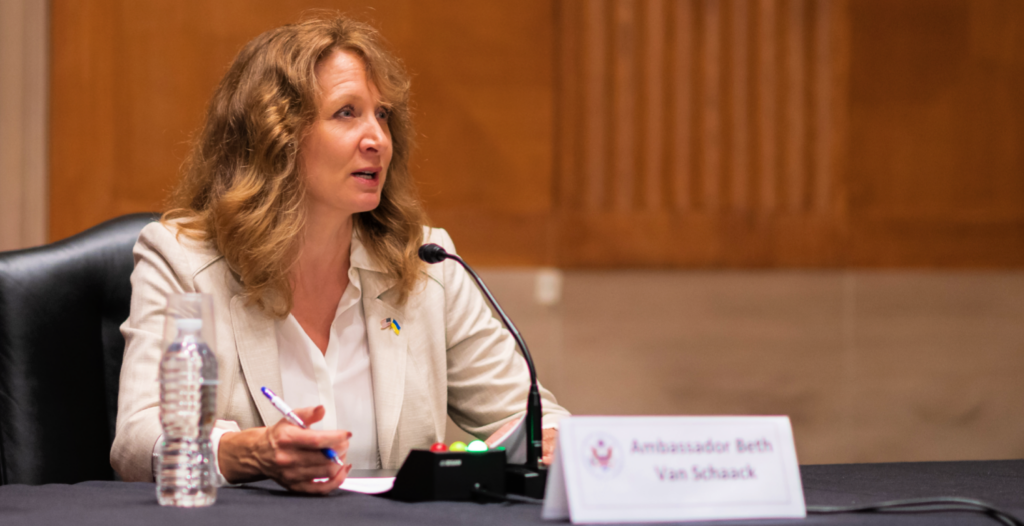WASHINGTON—To mark the 42nd anniversary of the brutal murder of New Jersey State Trooper Werner Foerster by Joanne Chesimard on May 2, U.S. Rep. Chris Smith (NJ-04) today announced the introduction of a bill to strengthen the ability of the United States to extradite convicted killers like Chesimard from countries where they have taken refuge, and bring them home to face justice. The bill is cosponsored by Rep. Albio Sires (NJ-08).
“In many cases around the world, efforts to extradite convicted criminals have simply stalled, leaving surviving families without closure and our efforts to seek justice in limbo. Instead of continuing to allow violent criminals to live openly abroad – apparently outside of our government’s reach – we must strengthen the Executive Branch’s ability to take action to resolve such failed extraditions,” said Rep. Smith. “In particular, the Obama Administration’s recent efforts to normalize relations with Cuba gloss over the fact that the Castro regime harbors known fugitives from justice, including Joanne Chesimard. This bill will force the Administration to shine a bright light on nations that harbor fugitives and build up U.S. efforts to extradite criminals who have escaped justice so far.”
“While U.S. policy has shifted to increased engagement with the Castro regime, Joanne Chesimard continues to roam freely in Cuba despite being convicted for the brutal murder of New Jersey State Trooper Werner Foerster,” said Sires, ranking member of the House Western Hemisphere Subcommittee. “As I have said many times before, the Administration should be pushing for the extradition of Joanne Chesimard and all fugitives that Cuba continues to harbor. This legislation takes steps towards extraditing fugitives that have evaded justice for far too long by hiding under the Castro brothers’ protection.”
The bill, H.R. 2189, known as the “Walter Patterson and Werner Foerster Justice and Extradition Act,” honors Walter Patterson, a World War II veteran, as well as Foerster. They both were viciously murdered by criminals who were convicted, escaped prison, and simply moved abroad, where they live freely today.
George Wright, convicted of murdering Patterson, broke out of jail in 1970 and fled to Portugal, while Chesimard escaped prison in 1979 and made her way to Cuba. The United States currently has bilateral extradition treaties with more than 100 nations–including Cuba and Portugal–as well as an extradition agreement with the EU. However, both countries refuse to repatriate the convicted criminals living in their midst.
The “Walter Patterson and Werner Foerster Justice and Extradition Act” would require the executive branch to submit an annual report to Congress on fugitives currently residing in other countries whose extradition is sought by the United States, including the number of fugitives; efforts undertaken to date to secure their return; the average length of time that such cases have been outstanding; how many cases have been successfully resolved; and any barriers to resolution of such cases. In addition, the report requires information about U.S. citizens whose extradition has been sought by other countries during the past five years, including a list of countries seeking extradition and the outcomes of those requests.
“I am happy that justice is still being pursued for my father’s murder,” said Ann Patterson, who testified at a 2012 hearing of the Helsinki Commission Smith chaired on the case. “If George Wright had only served his sentence he would have been out of jail long ago. The lack of justice has been stressful on me and my family. It was very discouraging to think this case had just ended. George Wright may never complete his sentencing, but this bill gives hope that a positive change may be made to prevent this from happening again. Convicted criminals/fugitives should not be allowed to live free, just because they choose to flee to, and reside in, a country that refuses to extradite.”
“Every additional day Joanne Chesimard gets to enjoy in Cuba is a further affront to our justice system and an insult Trooper Foerster’s family,” said Pat Colligan, president of the New Jersey State Police Benevolent Association. “Joanne Chesimard has had her due process under the law and our nation must demand that Cuba return her to face her punishment. We fully support Congressman Smith’s efforts and will be working with him to keep the heat on in this case.”
“Re-introduction of this legislation reminds us all that our work is not yet done in seeking justice for the family of New Jersey state trooper Werner Foerster,” said Christopher Burgos, president of the State Troopers Fraternal Association of New Jersey. “We will not forget his 1973 murder, committed by Joanne Chesimard. She and other fugitives still live in comfort in Cuba, after having tried to destroy our way of life here in America. We strongly support Congressman Smith and our NJ delegation for their continued tireless efforts on our behalf.”
Rep. Smith is also the author of the Cuba Human Rights Act of 2015, H.R. 1782, which calls for any change in U.S. foreign policy to be contingent on the Castro regime ceasing its violation of the human rights of the Cuban people and returning fugitives such as Chesimard.




